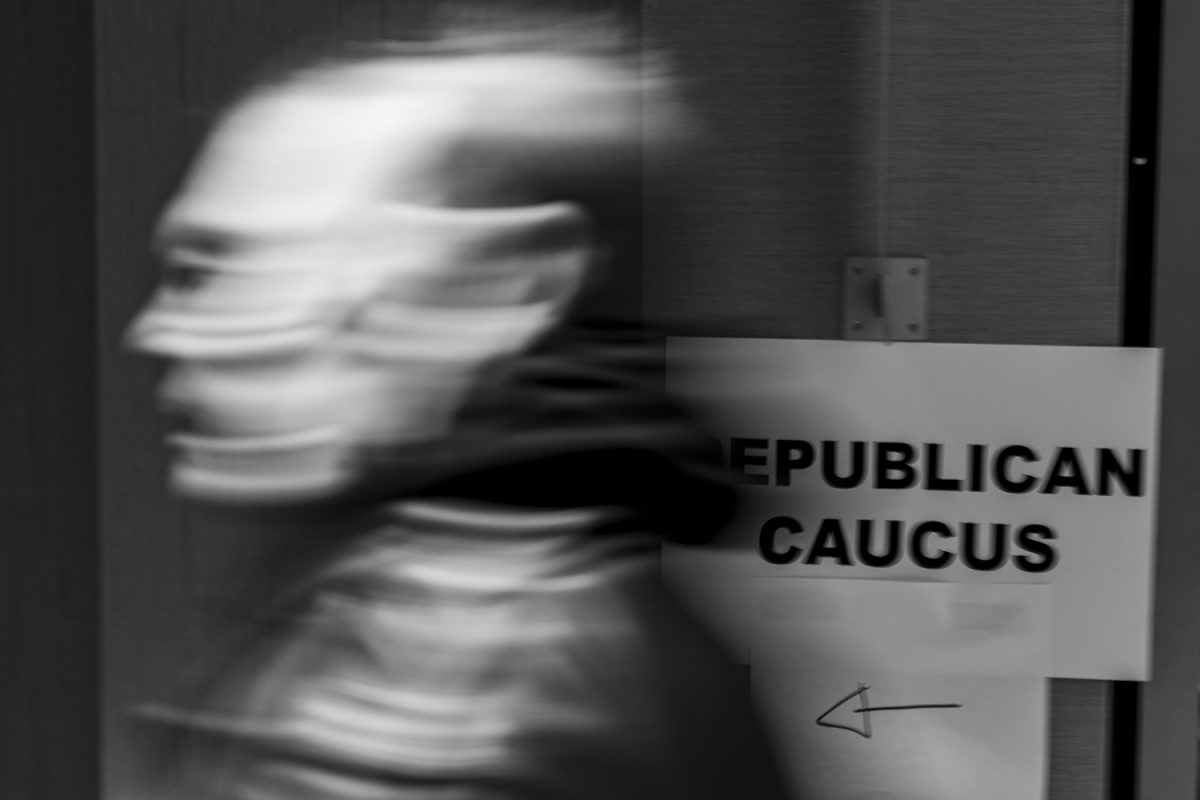A simple handshake in a small town diner in the nation’s political proving ground is a crucible where candidates are forged or broken.
Since implementing its now renowned pre-election caucuses in the 1970s, Iowa has cultivated an image. It was the place where rural voters got the unusual opportunity to speak directly to their candidates for president and a place where campaigns faced their first — and sometimes final — reckoning.
However, as the 2024 election cycle fades into the background, one that came and went without the Democratic Iowa caucus, constituents have started to wonder if they, too, are fading into something less important — a footnote in this increasingly divided political atmosphere.
In the wake of their tumultuous 1968 Chicago convention, the Democratic party sought to give more power to the people, and Iowa, with its early-set precinct meetings. Starting off as what some would call a “historical accident,” both Republicans and Democrats of Iowa agreed to hold their caucuses on the same day. They eventually found themselves in an unexpected national spotlight, a moment that solidified Iowa’s peculiar spot in the presidential chronology.
The Iowa Caucus offered something increasingly rare in our political landscape: intimacy, something that is lost with the cancellation of the caucus.
It was a chance for ordinary Iowans to look presidential candidates in the eye, to ask them tough questions, and to gauge their sincerity. It was a moment when influence wasn’t measured in campaign donations or social media followers, but in the strength of an argument and the conviction in a candidate’s voice.
“The Iowa Caucuses seemed to be a bigger deal back then. They’re a little more downplayed now,” Nicole Wakefield, a member of the University of Iowa’s 1994 graduating class, said. She reflected on the days when students braved the biting winds of January to gather in school gyms and church basements — not to simply cast a ballot but to engage in neighborly debate.
In February 2023, in the midst of election hype, the Democratic National Committee, or DNC, revoked Iowa’s “first in the nation status” due to growing concerns that the predominantly white state does not accurately represent the entire party’s composition. This was only a couple of years since the 2020 caucuses, when technological errors and “quality control checks” plagued the entire election process.
While this is true, 86 percent of Iowa’s population is white, and the Democratic Party at large is home to 61 percent of Hispanic voters and 83 percent of Black voters. Those who will feel the absence of the caucuses to the fullest extent are the candidates.
A former chairman of Iowa’s Democratic party, Gordon Fisher, argues this point as well, stating that the playing field in Iowa is simply unbeatable. The combination of extremely affordable media markets and incentives for politicians who conduct grassroot campaigns would further degrade the prominence of money in politics, making Iowa an ideal place to hold the first caucus for the party.
Regardless of whether the caucuses occur in a presidential election cycle, the question still remains: Did the absence of the caucuses affect the 2024 election process? Essentially, yes; Iowans certainly exhibited a reaction on Election Day. Per the Des Moines Register, voter turnout has been down 6 percent since the 2020 election.
Iowa’s influence has waned, without a doubt. But does this mark the end of our state’s role in shaping the national conversation? And did we, in our pursuit of a more representative process, sacrifice the very intimacy that once defined Iowa’s unique contribution to American democracy?
And, more importantly, can we ever reclaim it?



